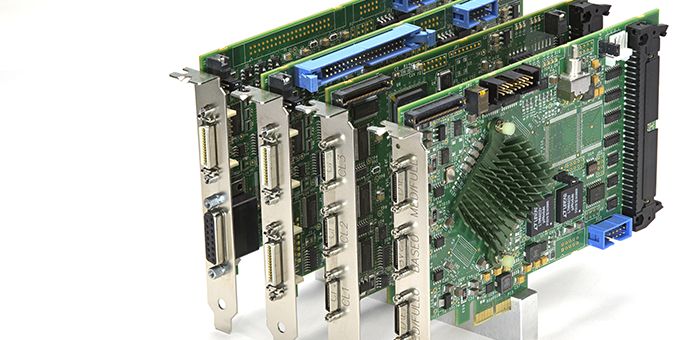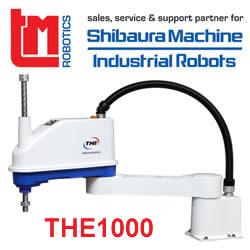Donal Waide, Director of Sales at BifFlow Inc. shares with us his thoughts on how BitFlow is managing through the pandemic as well as insights into what the future of Robotics and Automation may be.
 Business Perspectives and the Impacts of COVID-19 - Q&A with BitFlow Inc.
Business Perspectives and the Impacts of COVID-19 - Q&A with BitFlow Inc.

Q&A with Donal Waide, Director of Sales | BitFlow Inc.
How was your workforce directly impacted by COVID-19?
We are committed to providing a safe workspace for all our employees. As an essential business, BitFlow is continuing to operate shipping and receiving daily. A lot of our team are working from home, but we had planned of this eventuality when we saw the impact of COVID-19 as it raced across Europe and Asia. Since early March several employees are home based and continuing to work as normal. A lot of the engineering department have test workstations set up in their homes also and when something is needed in the office we alert each other as to who's "on deck" that day.
How are you seeing COVID19 changing the way people do business?
Yes, especially on the sales side of things. As travel has been reduced and with certain companies closed due to restrictions related to the pandemic the traveling salesman is now in the back seat and we are using phone calls and video chats more. Trade show cancellations are affecting gathering of minds and ideas. It's a different approach that is needed when this is all contained.
We are also seeing an uptick in some existing R&D work. Typically in smaller organizations the R&D engineer can also be the floor engineer and is often dragged away from his role to put out a daily fire, so to speak. As manufacturing has slowed or ceased in certain companies we see a quicker turnaround in responses from these engineers.
What type if any supply chain disruptions have you seen and can you share an example of how you are overcoming these?
During any time, we tend to hold stock on hand for delivery. This has helped us tremendously as some of our suppliers were closed either completely or on a reduced schedule. This in turn affected lead times of anything currently in the manufacturing process. In a normal market this would affect us, but we see more companies simply not investing right now, due to a slow down on their side, or a not committing to spending without having sales of their own.
One of the effects of the 2008 recession was that companies placed shorter and smaller blanket orders. We are seeing that effect now again.
As of now, have you seen any effects on the robotics market? If so, how?
While we aren't directly affected as yet by changes in the robotics market, we are seeing an uptick in inquiries as to where we would be fitting into the model of adding automation to a plant. Several companies will have to rethink how they operate and we could see an increase in the usage of automation as we move forward.
Many companies are now trying to see how to incorporate social distancing into their assembly lines and automation here can play a large role. This does not mean that jobs will be eliminated, but repurposed.
Cobots, while not mainstream, may simply become part of the workforce very quickly and it's a matter of how the engineers at each company see a safe and efficient way to incorporate this onto the factory floor.
How do you think people’s view of robotics and automation will change as a result of this pandemic?
There is always a misnomer that robots are out to take people's jobs, but people forget how several large corporations have enhanced their employment numbers with the addition of automation. And in many cases a human is the best for certain jobs still. That said, more people will be exposed to the real capabilities of the robotic industry as we continue to get through this pandemic. For example, a robot that can decontaminate a hospital room is far more attractive than risking the life of someone to clean it effectively. That said, the robot might be able to get decontamination to 90% while the worker finishes up once the robot is finished. Cobots like these are the way forward for both human safety and efficiency.
How do you expect your revenue to change overall in 2020 because of COVID-19?
Our sales to the manufacturing sector (non essential businesses) are definitely affected, but our sales into the medical and life science customers are continuing as normal and in some cases increasing. However, losing revenue into fields such as manufacturing, automotive, defense are hard to replace and will have a definite overall negative impact on our revenue. While these customers are still there, all current projects are being put on hold or pushed out to later dates when it is deemed safe to restart work again. Several companies will be delaying the introduction of new technology as they are saving their R&D dollars to focus on sales and production. As mentioned above, existing R&D will continue, enabling us and our customers to be ready for the next wave of growth.
​Moving forward what are you anticipating for and how are you preparing for those challenges?
Business will not return overnight, and we have to use the extra time we have wisely to plan ahead and to be prepared for a slow climb back to the top of our game. We did this in 2008 and we can do it again.
How do you anticipate adjusting to tradeshow cancellations? How do you anticipate continuing to reach out to prospective customers?
Tradeshows allow a small company such as ourselves get great exposure to a large audience in a small amount of time. Shows like Laser World of Photonics in Shanghai and Vision Stuttgart are excellent platforms to enable potential and existing customers to visit us and learn quicker and more about us. Once it is safe again to venture out into the world, there will have to be a lot of trips to customers following this one. Webinars seem to be gaining in popularity and using this to gather leads will help.
Can you share what you have learned about your business and its employees from this?
I work with a great bunch of people, everyone has stepped up their game to play their part as best as possible.
We are all in this together and we will get through it if we pull in the same direction.
About Donal Waide
Donal Waide has been the Director of Sales at BitFlow since 2010. He holds a Bachelor of Engineering from the University of Limerick and has been involved in the machine vision industry since the mid 90's.
The content & opinions in this article are the author’s and do not necessarily represent the views of RoboticsTomorrow
Featured Product

